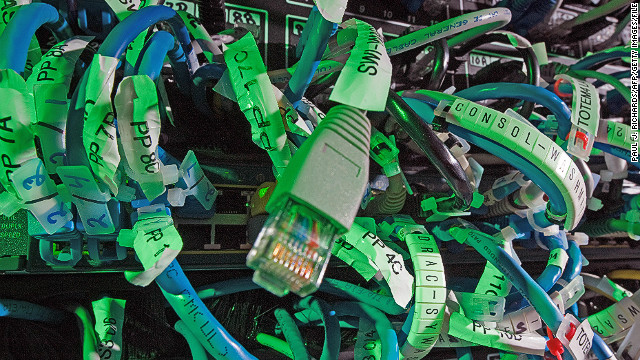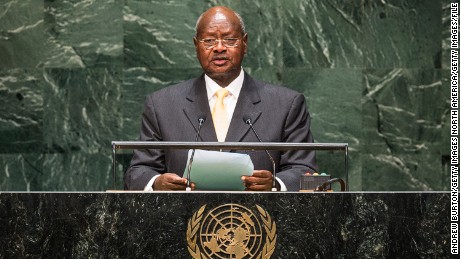Lagos (CNN)A Uganda tech company has filed a lawsuit against the government over a new social media tax, which went into effect Sunday.
The tax means Ugandans will now have to pay 200 Ugandan shillings ($0.05) a day to use popular platforms like Twitter, Facebook, and WhatsApp.
In the lawsuit, Uganda's government is accused of breaching the principles of Net neutrality and the petitioners want Uganda's Constitutional court to overturn the government's decision to charge the unpopular tax and "declare it as illegal, null and void."
They claim that the tax was "passed with no public participation and hinders freedom of speech and innovation," in the petition.
Silver Kayondo, one of the men involved in bringing the suit, wrote on Twitter: "In my Affidavit, I contend that the tax offends the principles of NetNeutrality..."
Angry Ugandans have turned to social media to complain about the new tax, and two men stormed the country's parliament in protest before being arrested, local media reported.
The men said they had no income and used services such as WhatsApp to communicate with their course tutors.
President Museveni, who has ruled the country since 1986, has reportedly introduced the bill because he says social media encourages gossip.
Fewer Ugandans have been online since Sunday, and one described it as "absolute torture."
Many say the tax will affect their livelihood while others see it as double taxation as a 1% tax is also being applied to mobile money transactions.
"You can't pay the infamous social media tax without Mobile Money.," one wrote on Twitter.."Folks, you must load Mobile Money, face the 1% deduction then go ahead to face an even bigger deduction paying the social media tax..."
The Excise Duty (Amendment) Bill 2018 will be charged through mobile phone operators via individual SIM cards because Africans mostly access the internet via mobile phones.
Some tech-savvy Ugandans initially installed encrypted virtual private networks (VPN) to avoid the tax.
However, local media reports that the government has now blocked some of the VPN sites.
A lawmaker told CNN the tax was imposed to raise money for the country and to avoid relying on donor aid.
Parliamentary spokesman Chris Obore defended the law, saying that as more Ugandans use social media, it should become a vital source of revenue for the country.
"The government is trying not to over-rely on donor funding. It is just a redistributive tax as the government is out to look for money from those who have to finance projects," Obore told CNN.
He added: "The tax is very small. 200 shillings (50 cents) in Uganda to a dollar is very negligible. People in Uganda will not find it too expensive."
The tax will push the cost of internet access further out of reach for millions of low-income and unemployed Ugandans, the World Wide Web Foundation said.
The price of a 1GB mobile broadband plan in Uganda costs more than 15% of average monthly income, according to figures from the Alliance for Affordable Internet. World Bank figures show that just 22% of the country are currently online.
The Collaboration on International ICT Policy in East and Southern Africa (CIPESA) published a report in 2016 that said the Ugandan government was stifling digital rights.
Uganda's security forces blocked the country's internet access during the February 2016 elections.
President Museveni at the time defended the move as a "security measure to avert lies ... intended to incite violence and illegal declaration of election results."
This new tax comes as neighboring country Tanzania recently introduced a controversial fee of $930 on bloggers and online publishers, a decision that is being challenged by local activists in court.
In Kenya, President Uhuru Kenyatta signed a cybercrimes bill, which criminalizes the publication of fake news and imposes hefty fines and a two-year jail term for those found guilty, despite pressure from international media rights group to stop it.



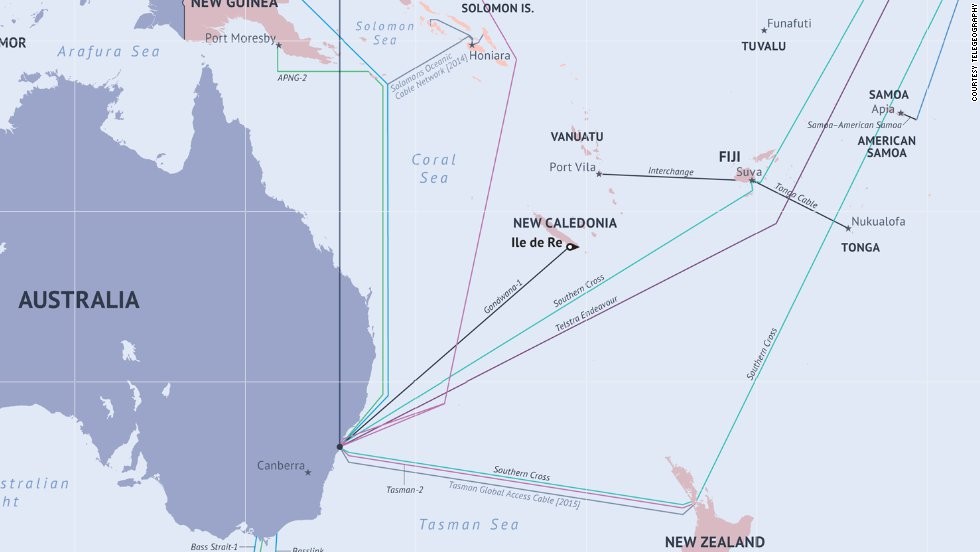


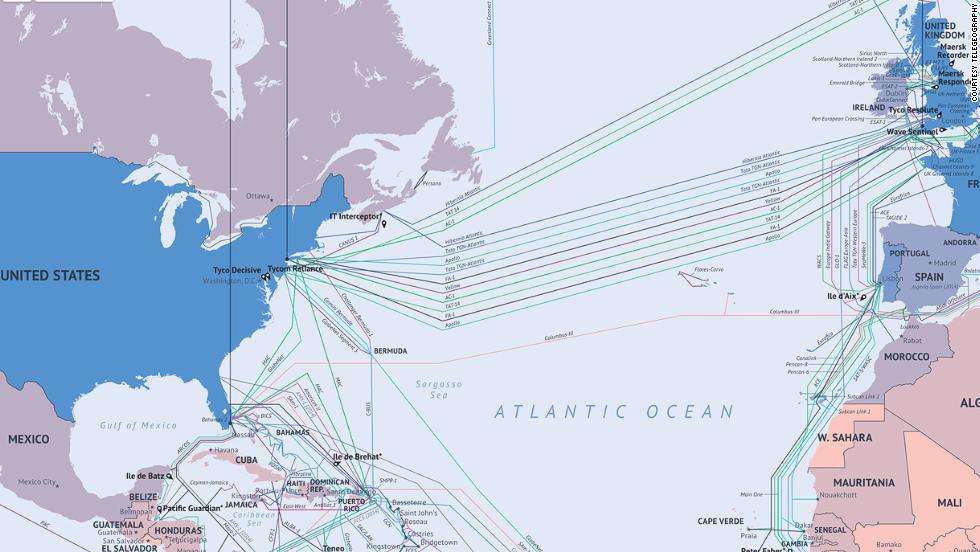
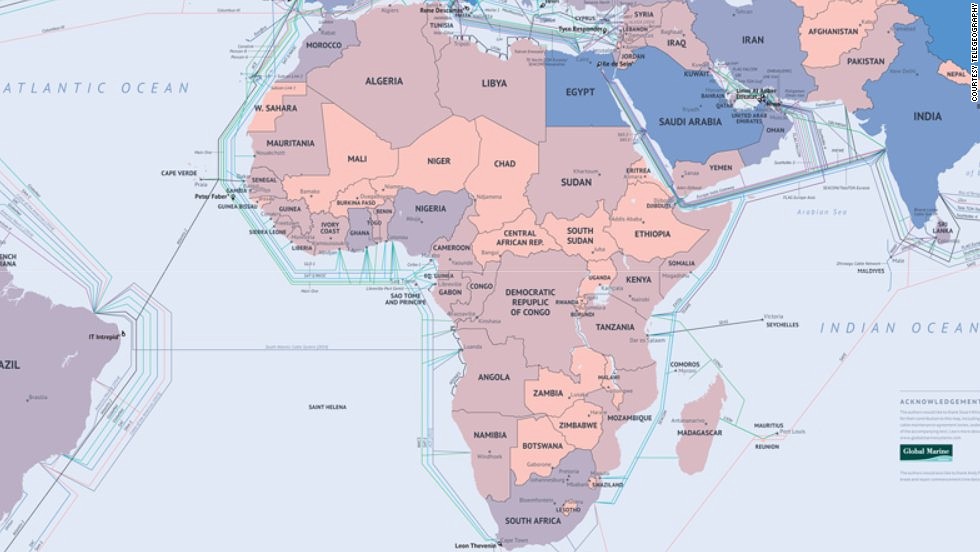
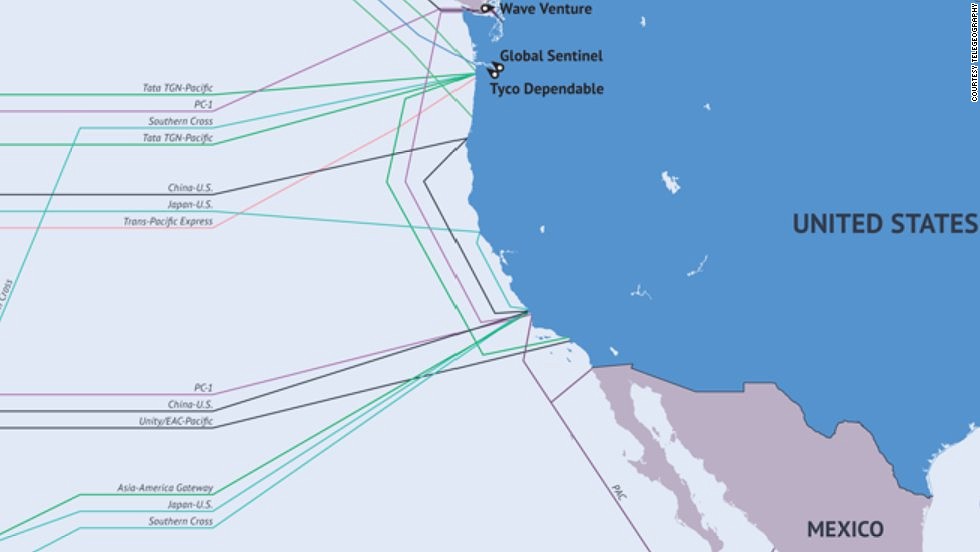
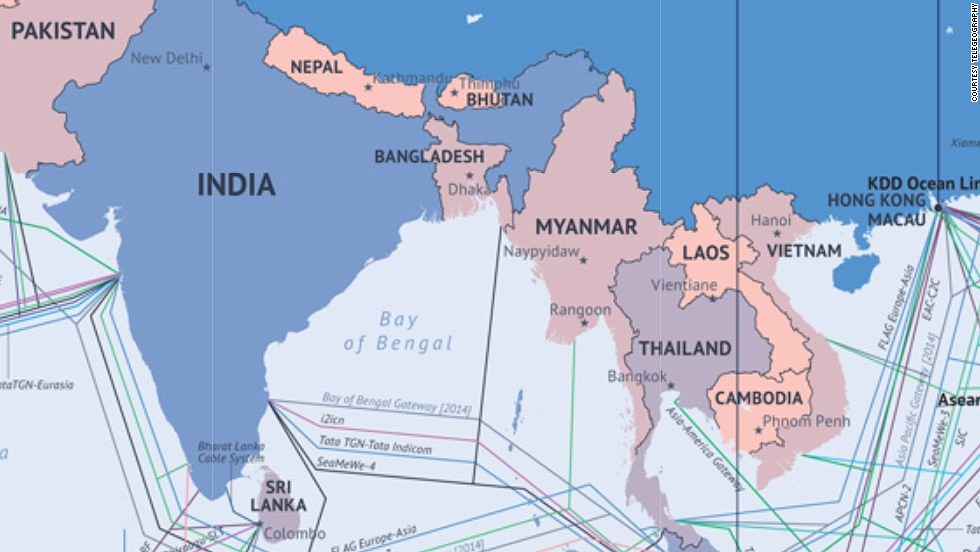
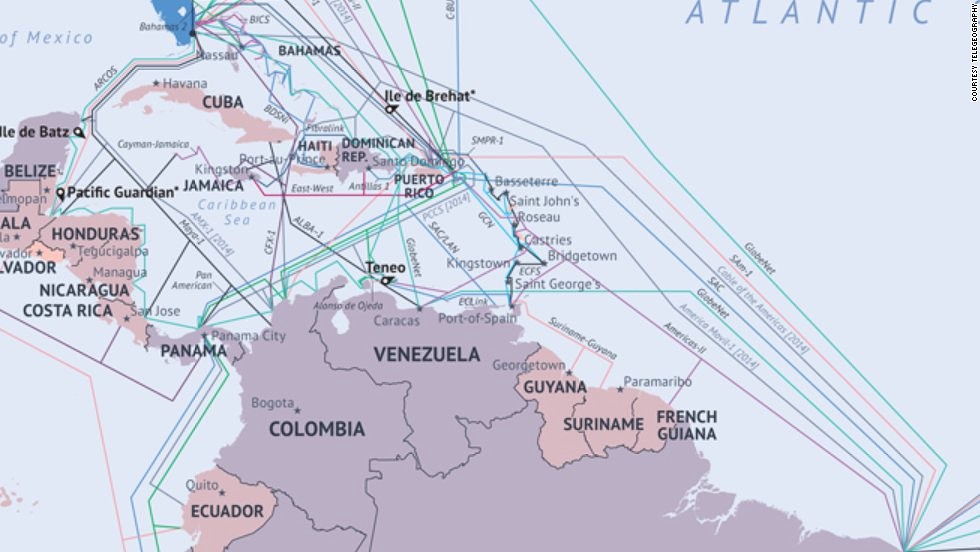
![<strong>How comprehensive is your map? What's missing?</strong><br /><strong>AM: </strong>Our map is updated all the time. We have all the cables in service, and receive feedback all the time from people saying "hey, you're missing a cable here." We hope it's as reliable as possible. I wouldn't say it's perfect, it might lack some smaller domestic cables, but for international systems -- the big ones -- it's comprehensive. <br />We also include cables that are planned -- sometimes these will be built and sometimes that won't happen. We keep up with deactivation -- sometimes cables are turned off, [if they are] too expensive to maintain or not running to capacity.<br /><a href="http://submarine-cable-map-2014.telegeography.com/" target="_blank"><strong><em>See Telegeography's interactive map here</em></strong></a><br />](http://cdn.cnn.com/cnnnext/dam/assets/140302120617-china-submarine-cable-map-2014-1-horizontal-large-gallery.jpg)











